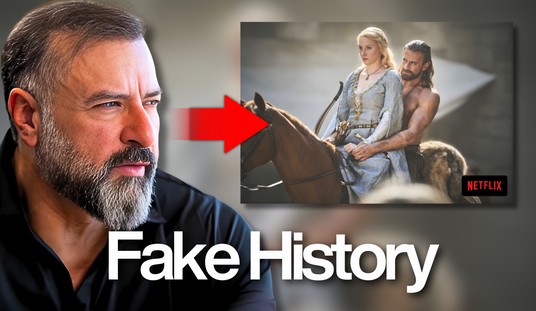On Friday, the U.S. military applied a policy activists have denounced as a “transgender military ban.” Indeed, transgender activists have compared the policy to “Don’t Ask, Don’t Tell” (DADT), the military policy forcing gay, lesbian, and bisexual troops to conceal their sexual orientation.
Miriam Ben-Shalom, the first lesbian reinstated to the U.S. Army after being kicked out for her sexuality and one of the leaders in the fight to repeal DADT, told PJ Media she found this comparison offensive.
“As one who helped bring the end to the ban on LGB military service and DADT, I am offended that a mental aberration is being compared to being a sexual human being,” Ben-Shalom told PJ Media. The decision not to endorse transgender identity in the military “isn’t like Don’t Ask, Don’t Tell at all.”
“As a Vietnam-era veteran (I was a drill sergeant, E-6 71L3X) and a lesbian, I have thought long and hard about this issue,” she added. “While I’d like to say, ‘Let them serve,’ I have come to the conclusion that it is correct to disallow transgender people to serve for the most part.”
People who suffer from gender dysphoria (the persistent identification with a gender opposite one’s biological sex) identify as transgender, non-binary, gender-queer, or one of an increasing array of options. Ben-Shalom noted that transgender identity is based on self-conception, not biological sex.
“There is no firm definition of what it means to be transgender and being so is based on invention, self-disclosure, self-definition ONLY,” the veteran told PJ Media. “We are expected to use non-grammatical, made up language when dealing with these people and women are forbidden to use proper terms for their body and its functions.”
While some transgender people undergo surgery to change their bodies to match their gender identity, removing healthy sex organs and replacing them with artificial ones, “some do not have any surgical alterations, but still insist they are ‘transgender’. Confusing, isn’t it?” Ben-Shalom explained.
Ben-Shalom noted that there are many reasons why potential recruits can be turned away from the military. At least seven of the disqualifying conditions apply to transgender people.
According to Department of Defense (DOD) policy, people with “major abnormalities and defects of genitalia such as change of sex” are excluded, as are men with an “absence of both testicles either congenital or surgical,” and people with “neurotic, anxiety, mood” or other disorders resulting in “admission to a hospital.” Other disqualifying conditions include “psychosexual conditions” such as “transsexualism, exhibitionism, transvestism, voyeurism,” and more.
“When looking at the transgender community, while certainly not all people there fall under some of these categories, it must be obvious that many do, whether by mental problems or physical /medical needs,” Ben-Shalom argued. For these reasons, any comparison to “Don’t Ask, Don’t Tell” “does not follow, for a wide variety of reasons.”
The veteran noted statistics from the pro-transgender group Human Rights Campaign, finding that “29.9 percent of females identifying as trans have tried to commit suicide, 41.8 percent of non-binary youth have tried to commit suicide, and ‘over half’ of males identifying as trans have tried.”
“That’s terrible. These people need help!” Ben-Shalom declared. “But they don’t belong in the military. Who is willing to take a chance and place a gun in the hands of a person who might want to commit suicide?”
She admitted that “not all people who identify as trans are suicidal, but military personnel are already at risk given their profession. “Is it right or fair to place them at further risk by placing in their midst a person who may be unbalanced? How can you tell who is stable and who is not?”
“The military should not be forced to take (some) mentally ill people into its ranks nor should it be forced to test everyone to make sure they are fit to serve just because some people don’t like it,” Ben-Shalom insisted.
She further argued that while “a person’s sexuality is part and parcel of what makes up that person,” transgender identity is malleable. “By using talk therapy or just letting so-called transgender kids grow up, studies indicate that up to 94 percent of these kids will grow out of their ‘transgender identity.’ So we can see that transgenderism may not be firmly part and parcel of the makeup of a human being.”
Ben-Shalom remarked on the phenomenon of rapid-onset gender dysphoria (ROGD) as a social contagion. “Kids hear about it, think it is cool, and wow, there you go. Remember the screaming kids who threw themselves at bands, who faint, cry, and carry on? This is just a more sinister version of that sort of thing,” she said. By contrast, “LGB people are neither hysterical nor given to change their sexuality day by day. They are what they are, just like heterosexual people.”
Importantly, she also distinguished between gender and biological sex. “Gender is a construct of a society that basically deals with social and cultural differences, the behavioral, cultural, or psychological traits typically associated with one sex—but NOT biology per se,” she said. “It is an artificial construct. But because of American squeamishness about sex, the word ‘gender’ today has incorrectly come to be used in place of the term sex as it relates to biology, causing much confusion and misinformation. ”
Ben-Shalom defended the “non-binary” identity, noting that it “simply means you do not accept the roles that a society expects of you based on your biological sex, which is not a bad thing.” Men who are not macho bodybuilders and women who are not dainty dancers are still men and women, and they should not be mistreated because they do not meet gender stereotypes. Transgender identity goes further, in denying the biological basis of male and female but affirming the gender stereotypes.
The former drill sergeant also warned against drastic changes to military service without sufficient research. “When it was suggested that lesbians, gay men, and bisexuals might be allowed to serve, studies were done and even service members were asked about their opinion on that. But no one has asked servicemembers about [transgender identity,]” she noted.
“Could this place military women at further risk of assault, since studies indicate that males identifying as trans commit violent acts at the same rate as other males? What if a female identifying as trans were to be raped? What then?” Ben-Shalom asked. Opening the military to transgender identity could have serious unintended consequences.
“No person should face discrimination, but service to country is not a right,” the veteran said. While she admitted that some transgender people could serve, “the question of making sure which ones are fit is a quagmire.”
“It is also a problem if some join to get the surgery paid for by the military and taxpayers in order to force their bodies to fit the sex they think they are, as opposed to wanting to serve the country,” Ben-Shalom warned. “I find it disingenuous when women servicemembers and veterans cannot get the healthcare and medical service they need, but it is just fine to spend over eight million dollars on what is cosmetic surgery and provide people with hormones and other medications because of a ‘feeling,'”
The policy against affirming transgender identity in the military avoids using the military to push social change, and it avoids an official sanction for transgender identity over biological sex. Many radical feminists and lesbians agree with social conservatives that biological sex is more real than gender identity, and the government should not enforce a view of sexuality that runs counter to biology.
Follow Tyler O’Neil, the author of this article, on Twitter at @Tyler2ONeil.









Join the conversation as a VIP Member